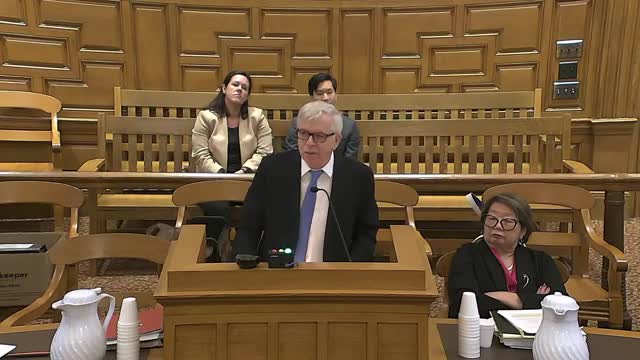Court hears explosive arguments in Sabatini defamation case
October 02, 2024 | Judicial - Appeals Court Oral Arguments, Judicial, Massachusetts
This article was created by AI summarizing key points discussed. AI makes mistakes, so for full details and context, please refer to the video of the full meeting. Please report any errors so we can fix them. Report an error »

In a recent government meeting, discussions centered around the legal implications of a high-profile case involving David Sabatini, a former researcher at the Whitehead Institute. The meeting primarily addressed the dismissal of claims under Rule 12(b)(6) and the anti-SLAPP (Strategic Lawsuit Against Public Participation) statute, which aims to protect individuals from lawsuits that are intended to silence their free speech.
Key points raised included the lack of a formal report sent to the National Institutes of Health (NIH) regarding Sabatini's dismissal, despite extensive documentation provided in the case. Legal representatives argued that the absence of this report undermines claims that the actions taken were part of a legitimate petitioning process to the government.
The discussion also highlighted a recent ruling in the Bristol Asphalt case, which was cited as a precedent indicating that anti-SLAPP protections have been misapplied in workplace investigations. The argument was made that expanding these protections to all workplace investigations could lead to an overwhelming number of cases being shielded from legal scrutiny, potentially complicating accountability in workplace misconduct.
Furthermore, the meeting delved into the conditional privilege associated with workplace investigations, which can protect statements made during such inquiries from defamation claims. However, it was contended that this privilege may have been lost due to excessive dissemination of information related to Sabatini's case, including an email sent to 247 individuals that subsequently reached the media.
The legal representatives emphasized that the nature of the investigation into Sabatini was not independent, citing communications between investigators that could compromise the integrity of the findings. This raised questions about the validity of the claims of sexual harassment that led to Sabatini's dismissal.
Overall, the meeting underscored the complexities of balancing legal protections for individuals involved in workplace investigations with the need for transparency and accountability in cases of alleged misconduct. The outcome of this case could have significant implications for future workplace investigations and the application of anti-SLAPP statutes.
Key points raised included the lack of a formal report sent to the National Institutes of Health (NIH) regarding Sabatini's dismissal, despite extensive documentation provided in the case. Legal representatives argued that the absence of this report undermines claims that the actions taken were part of a legitimate petitioning process to the government.
The discussion also highlighted a recent ruling in the Bristol Asphalt case, which was cited as a precedent indicating that anti-SLAPP protections have been misapplied in workplace investigations. The argument was made that expanding these protections to all workplace investigations could lead to an overwhelming number of cases being shielded from legal scrutiny, potentially complicating accountability in workplace misconduct.
Furthermore, the meeting delved into the conditional privilege associated with workplace investigations, which can protect statements made during such inquiries from defamation claims. However, it was contended that this privilege may have been lost due to excessive dissemination of information related to Sabatini's case, including an email sent to 247 individuals that subsequently reached the media.
The legal representatives emphasized that the nature of the investigation into Sabatini was not independent, citing communications between investigators that could compromise the integrity of the findings. This raised questions about the validity of the claims of sexual harassment that led to Sabatini's dismissal.
Overall, the meeting underscored the complexities of balancing legal protections for individuals involved in workplace investigations with the need for transparency and accountability in cases of alleged misconduct. The outcome of this case could have significant implications for future workplace investigations and the application of anti-SLAPP statutes.
View the Full Meeting & All Its Details
This article offers just a summary. Unlock complete video, transcripts, and insights as a Founder Member.
✓
Watch full, unedited meeting videos
✓
Search every word spoken in unlimited transcripts
✓
AI summaries & real-time alerts (all government levels)
✓
Permanent access to expanding government content
30-day money-back guarantee

